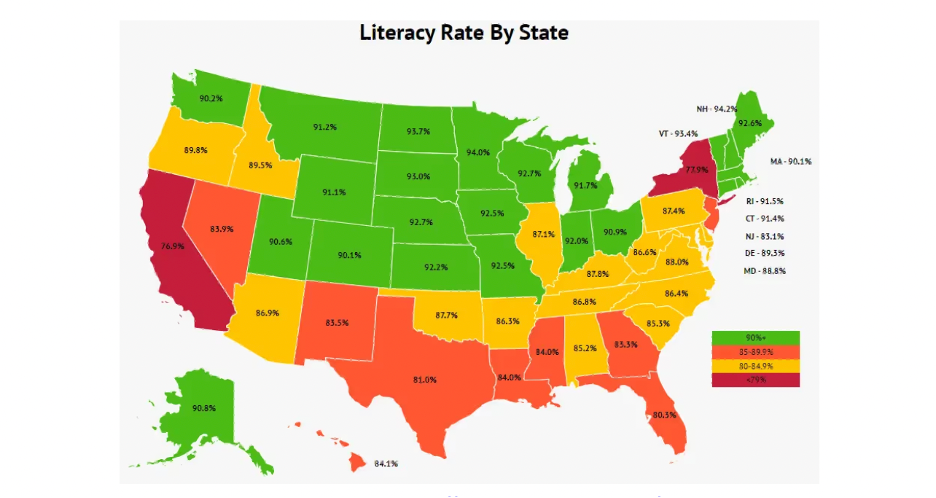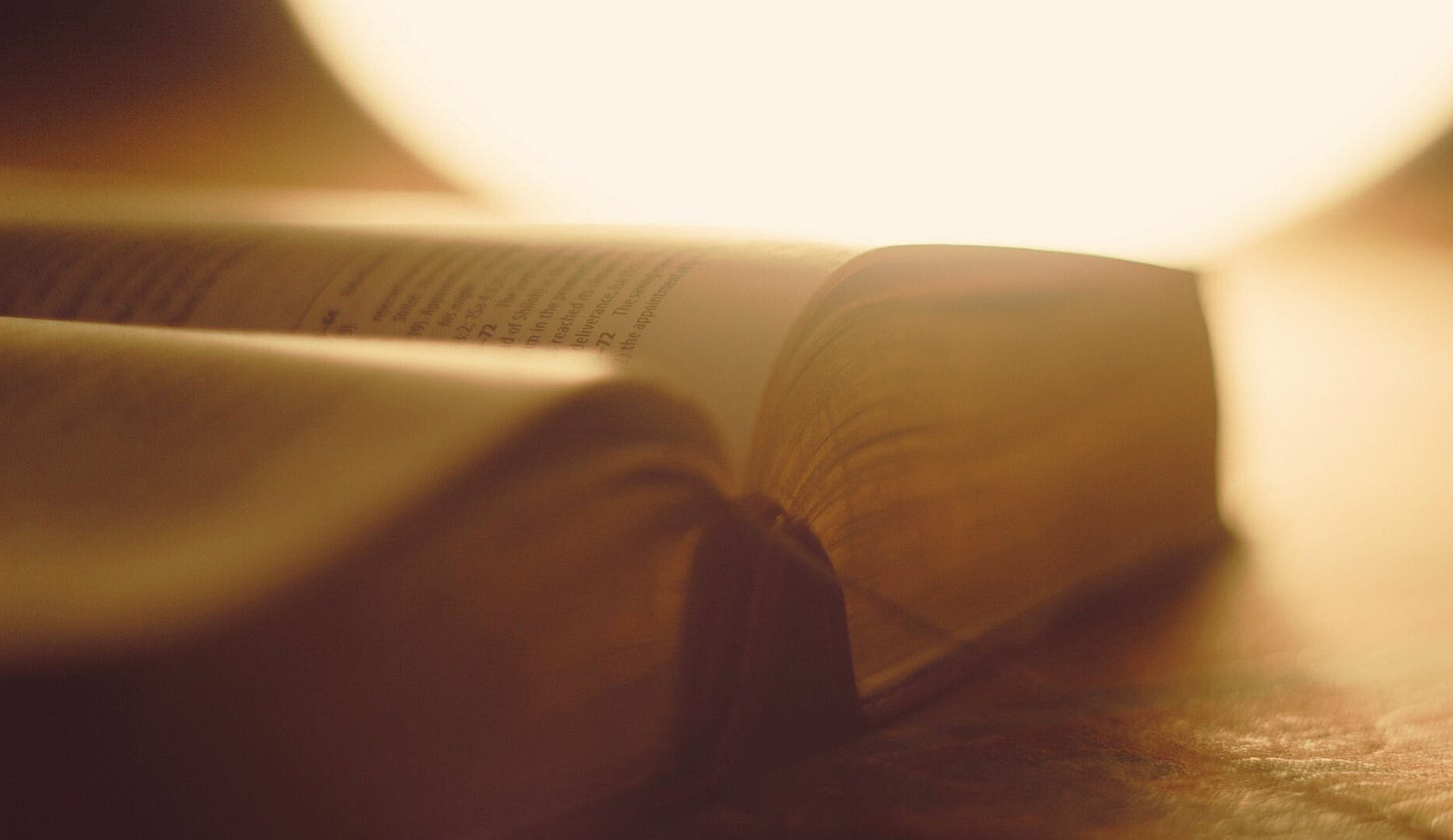Liberty and Literacy
A majority (54 percent) of American adults now read below a 6th grade level. One in five adults are considered illiterate, according to the National Literacy Institute.
Why does this matter? Literacy impacts far more than academic endeavors – it is a significant socio-economic indicator. For example, four in ten American adults who read poorly live in poverty, and three out of four people on welfare have low literacy skills. Some 75 percent of Americans who receive food stamps perform at the lowest two levels of literacy. Furthermore, studies show that 70 percent of all incarcerated adults in America can’t read at a 4th grade level, and 85 percent of juveniles who interact with the juvenile justice system are functionally illiterate.
While it might be surprising to some, many heartland states have higher literacy rates than the rest of the country. Despite the “hillbilly” stereotypes placed on Americans living in the central and southern part of the country, the elitist strongholds of California and New York possess the lowest literacy rates in the United States. Nearly a quarter of Californians and New Yorkers lack basic literacy skills.

Americans have access to more information than at any time in human history, but the data shows that we are becoming less equipped to use it. Commentators, educators, and even politicians recognize the decline of literacy in America and the crisis that it presents for our economy. In fact, researchers estimate that low levels of adult literacy could be costing the United States over $2 trillion a year.
However, I would contend that our diminishing reading skills present a threat to the future of our republican form of government. If a citizen cannot read and process information independently, it is more difficult to think and make decisions independently as well. The latter is a prerequisite for the existence of a genuine representative government.
Thomas Jefferson believed that the “object” of education includes the ability for a citizen “[t]o understand his duties to his neighbours, & country, and to discharge with competence the functions confided to him by either” and “[t]o know his rights; to exercise with order & justice those he retains…” Without the ability to understand liberty, we cannot expect to protect it. Education, as viewed by many of our Founders, was necessary to maintain an electorate capable of governing themselves.
This element is even more pronounced today with state and local governments over-utilizing direct democracy to govern through initiative petitions and ballot measures. Almost half of states (24) have a process for direct or indirect initiative petitions, according to the National Conference of State Legislatures. Many of them have laws requiring ballot measure language to meet minimum readability requirements, such as the eighth grade level – well above most Americans’ literacy skills.
In comparison to other countries, the United States is one of the least capable developed nations in terms of literacy, despite having the form of government that relies most on the capabilities of individual citizens. America ranks 36th in the world in literacy, according to the National Literacy Institute. Plus, we spend the fourth (6 percent) most on education as a percentage of GDP among Organization for Economic Cooperation and Development (OECD) member countries. From all sources, our nation is approaching spending $900 billion a year on education.
It is human nature to get distracted by flashy objects. A foundation of a home may not be very exciting to discuss, but without it, a safe and secure house is impossible to build and enjoy. Literacy is the key that unlocks all disciplines.
Beyond government and education, Christians should also take note. Literacy statistics put the state of the American church in a whole new light. Researchers estimate that less than 30 percent of the 2 billion worldwide Christians will ever read the entire Bible. Among the general population, only 10 percent of Americans indicate that they read the Bible daily and only 39 percent indicate that they read it multiple times per year. Among Christians, research shows that 80 percent of churchgoers don’t read their Bible daily.
While the Church is clearly failing to impart the importance of reading God’s Word in its congregations, and Christians are clearly choosing to not honor Scripture through their own decisions, the context of our literacy rates in America provide a whole new element to the discussion. Almost half (46 percent) of surveyed Americans say they did not read any book in 2023, much less the Bible. Is it reasonable to assume that our literacy crisis plays no role in the large number of Americans who don’t read their Bible? I think not.
In an era dominated by groupthink, slanted news commentary, and an academic system dominated by progressives, the ability for citizens to read and discern information for themselves is critical for the growth of our economy, the preservation of our Republic, and the flourishing of the Church.
While America can and should produce the most advanced academic and scientific research in the world, we should also focus on ensuring that the basic building blocks of learning are available to every American child. We will not be able to maintain an educated and engaged electorate if we do not.
As Walter Cronkite once said, “Whatever the cost of our libraries, the price is cheap compared to that of an ignorant nation.”



